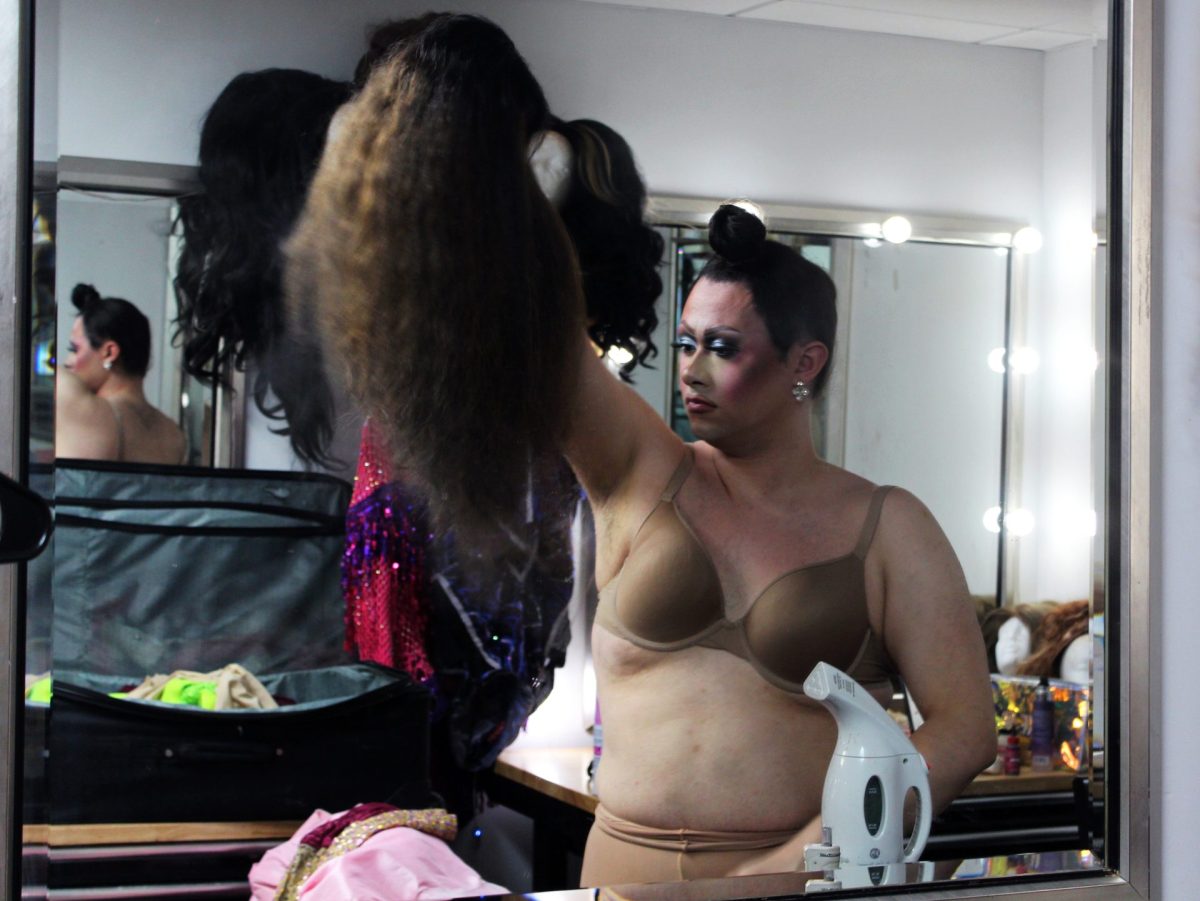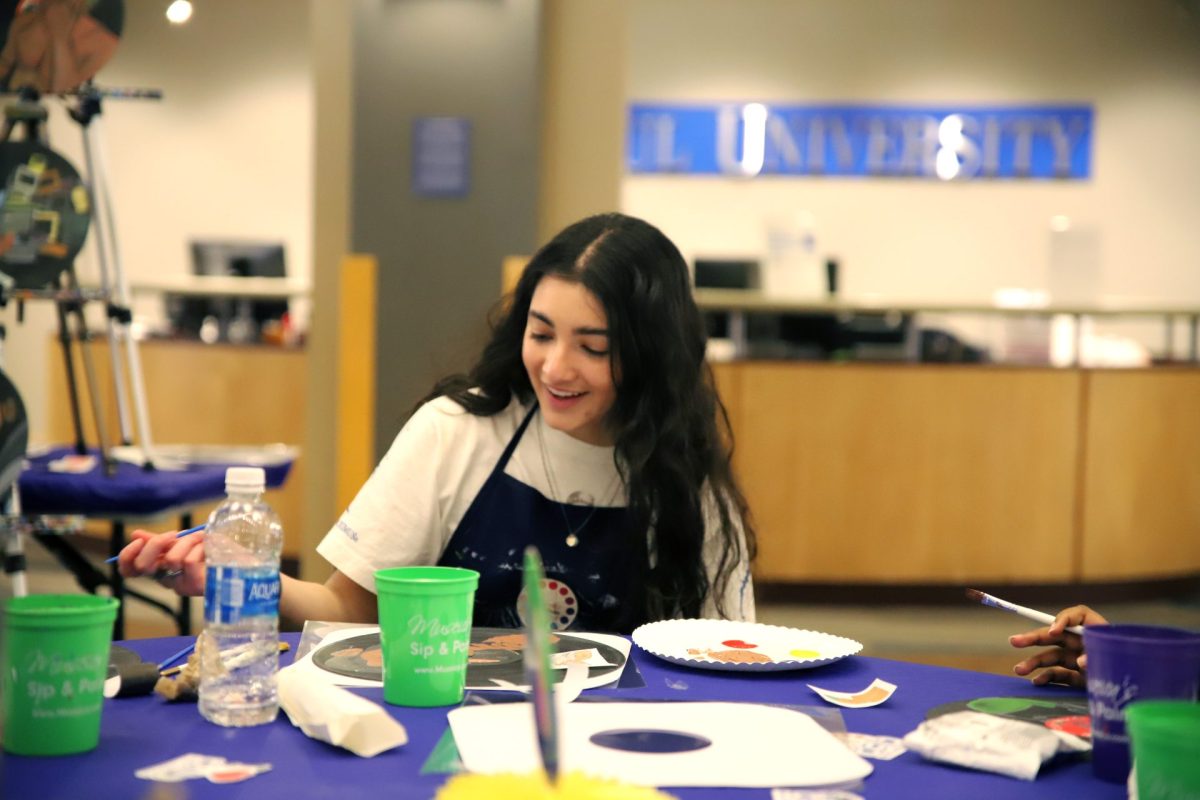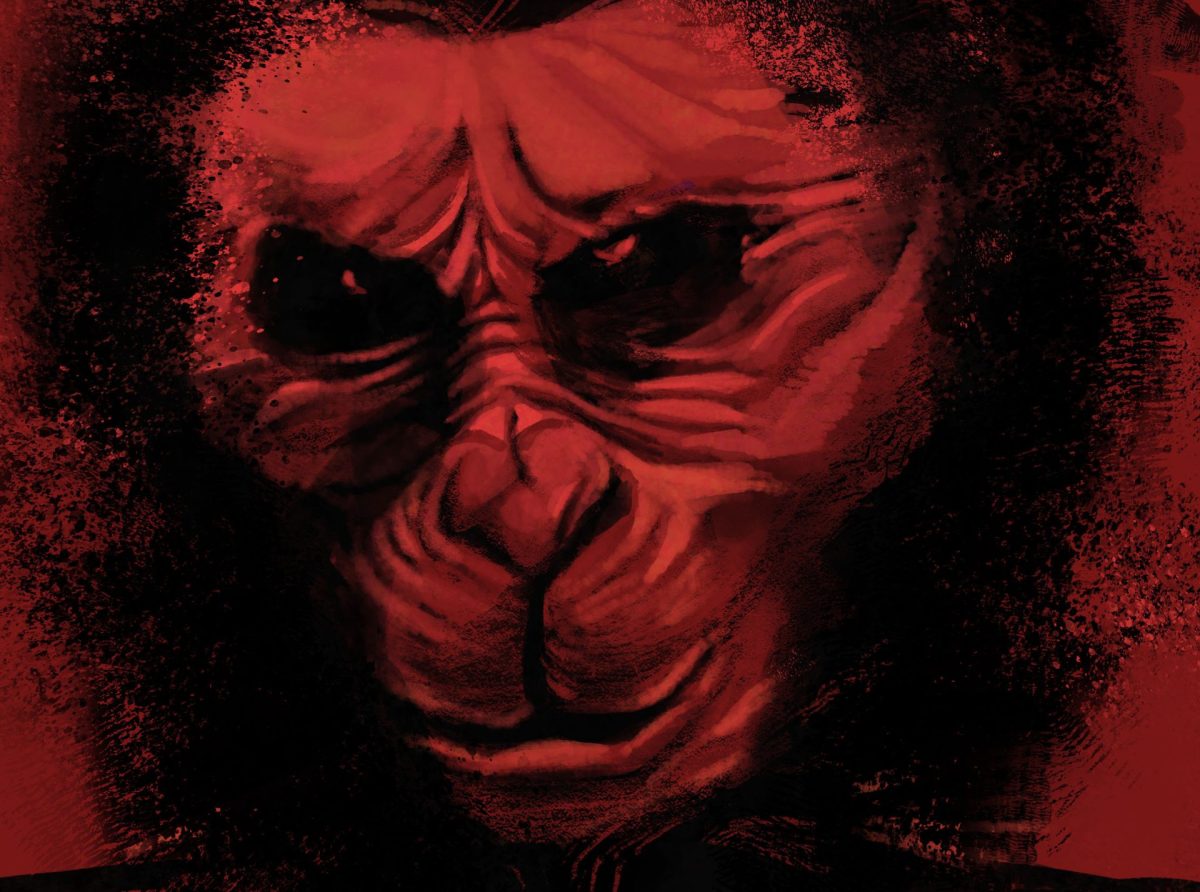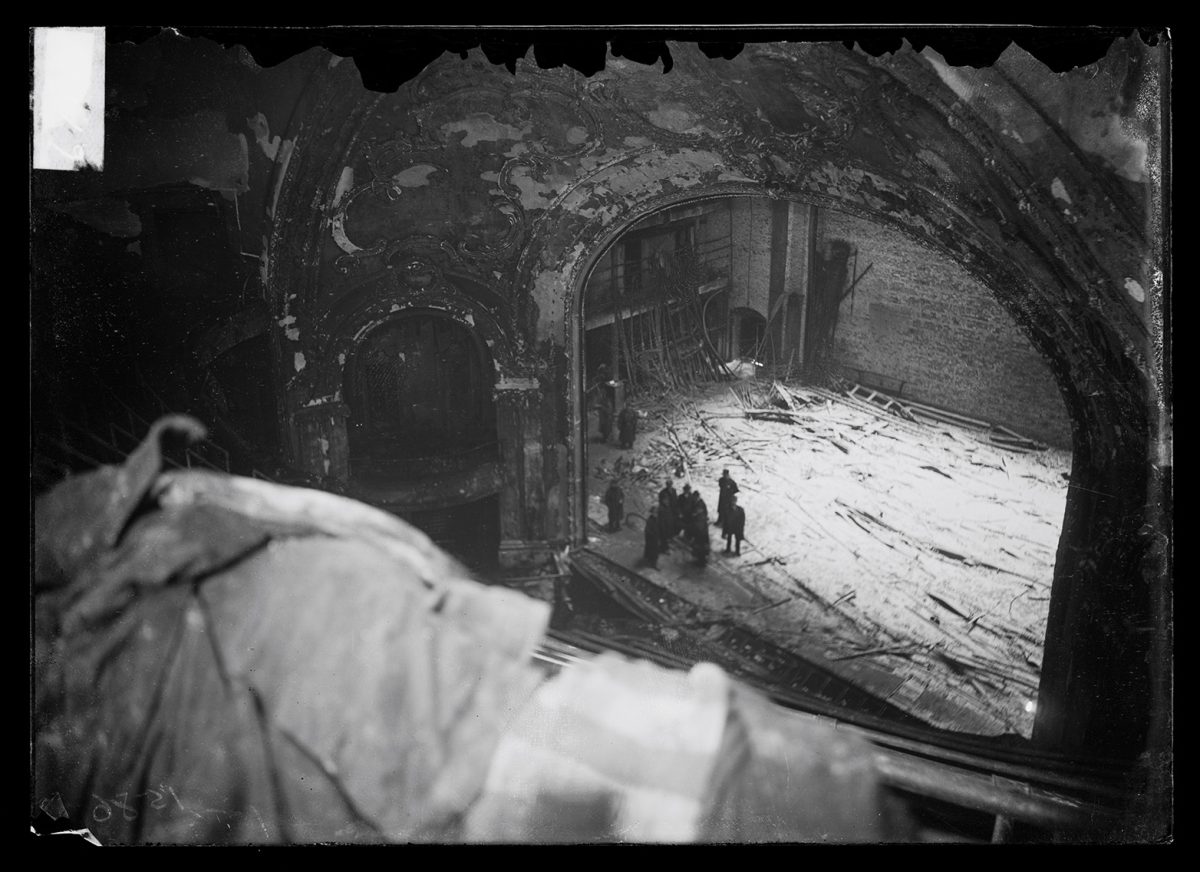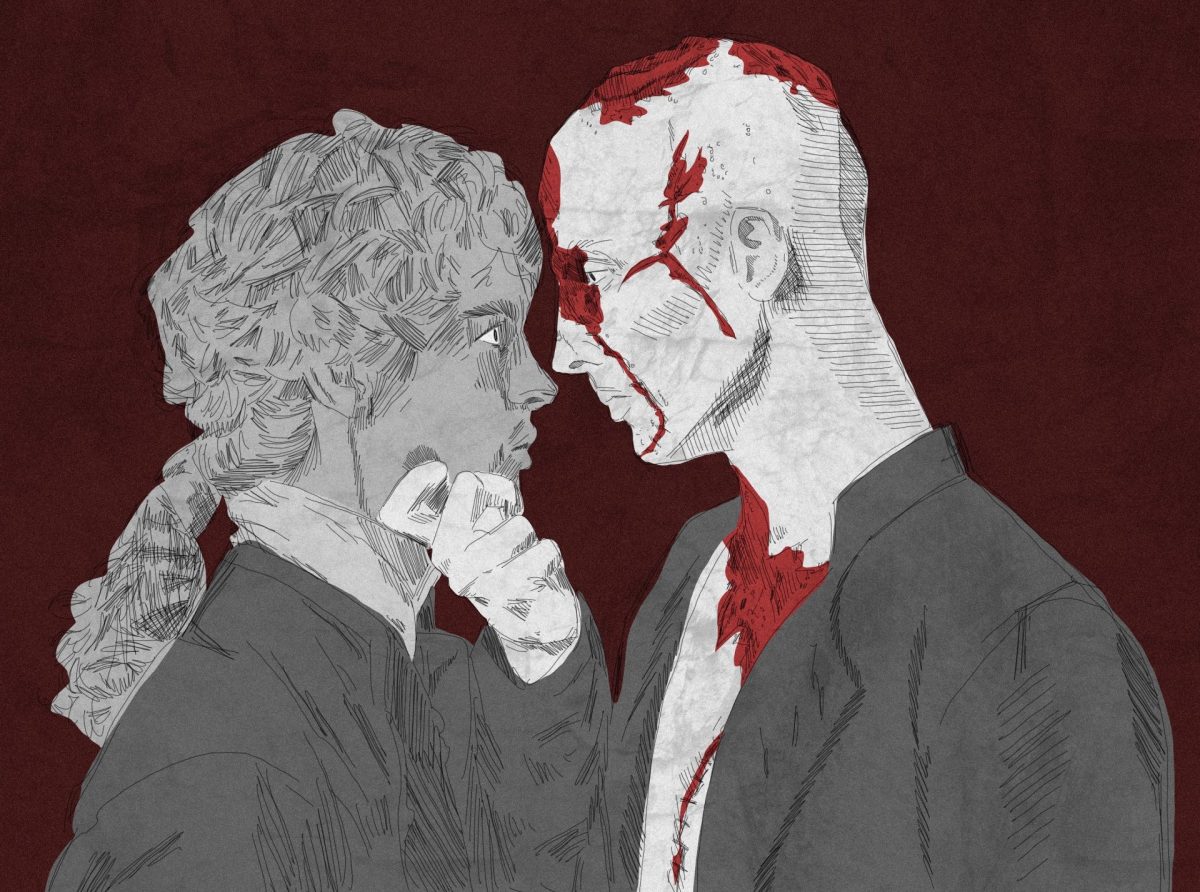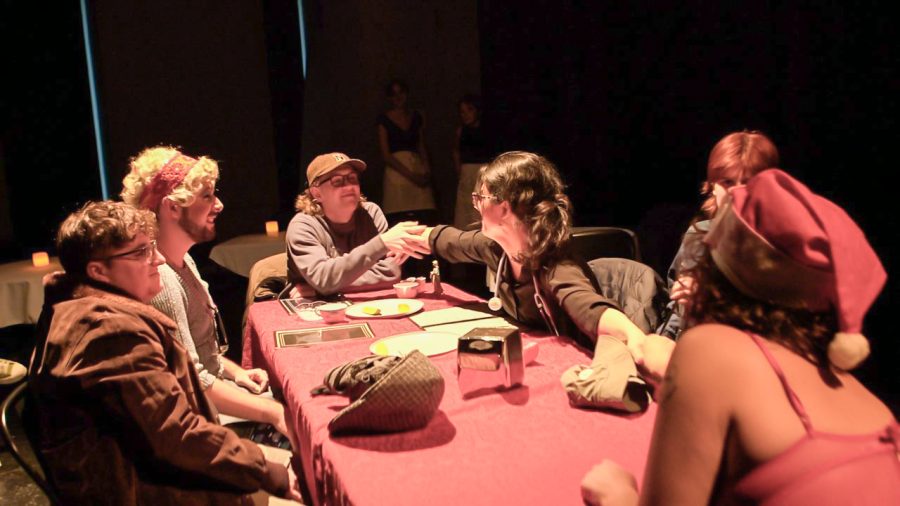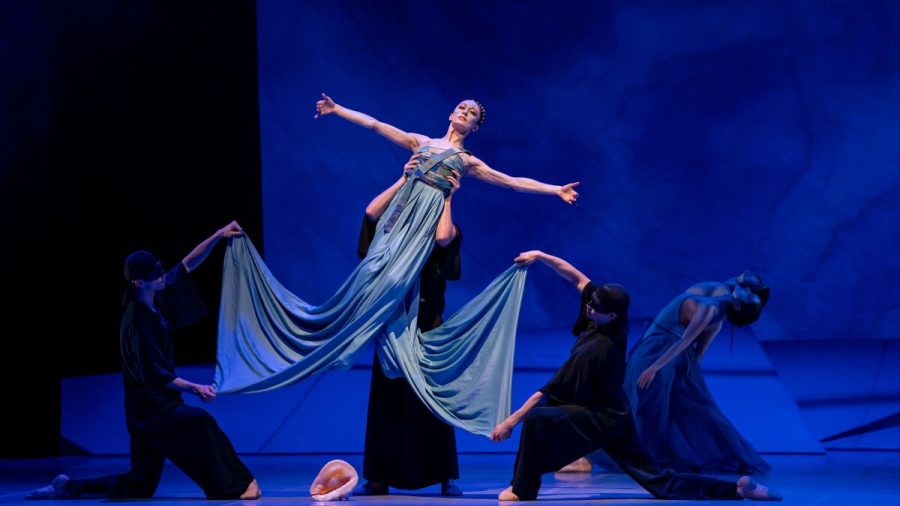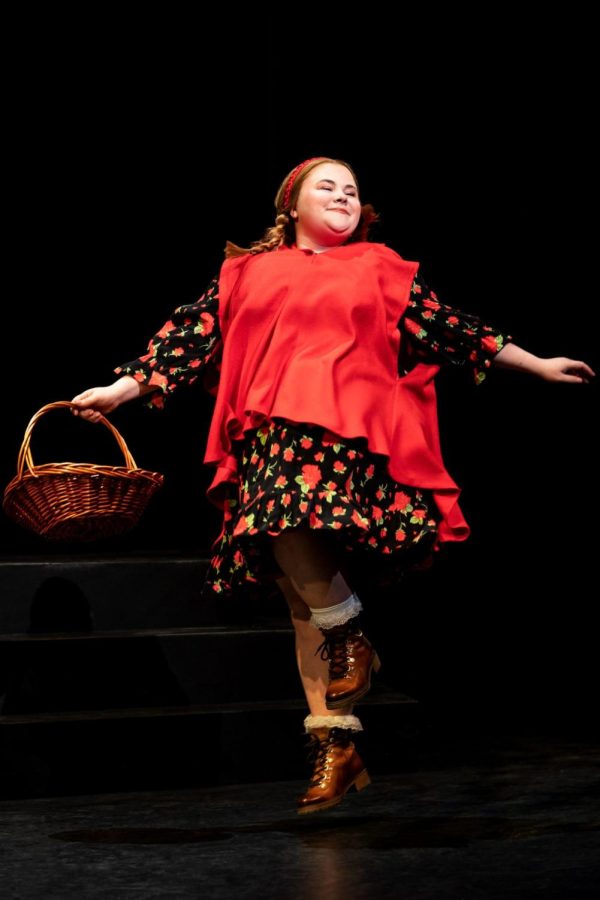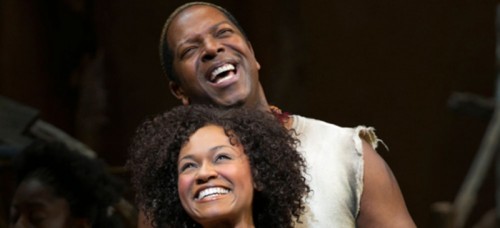
Over the past three years, Matt Stone and Trey Parker’s “The Book of Mormon” has boldly gone where no piece of musical theater has gone before. The production is raunchy, volatile and hilarious. But, above all else, “The Book of Mormon” possesses an unparalleled heart that is both surprising and warming.
The show chronicles the journey of two young Mormon missionaries who travel to Africa. In Uganda, they befriend the residents of a small village and, as they attempt to convert the residents, learn more about themselves and the world than they ever could have anticipated.
“I play Mafala Hatimbi, who is actually the patriarch of that village that they go to visit,” renowned actor and cast member, James Vincent Meredith, said. “My daughter, Nabulungi, is the one who first kind of buys into what they’re selling and she in turn tries to convince the other villagers of their message.”
The show teaches its audience acceptance gently. While its message is clear it does not proselytize but, rather, lets its audiences gather their own information and formulate their own opinions. The esteem that the show has garnered in past years is unprecedented. It is a tour-de-force that refuses to lose momentum.
“I know that I’ve never been a part of a production that’s had so many performances,” Meredith said. “The fact that we can go almost 900 shows and every night still kind of feel new and electric and have audiences that still eat it up because it’s their first time seeing it as well as other audiences who have seen it time and time again, whether it be with our company, or having seen it on Broadway or the other tour. (They) still are so psyched to come and hear the story and be moved.”
While the show is at times over-the-top in its visual and narrative strategies it is, somehow, always real and always human. While from a situational standpoint the story is distinct, the message that rings through it has the potential to touch everyone who comes to see it.
“I think that was the one thing that kind of surprised me initially about this story,” Meredith said. “Not that it was just so funny, but the fact that the attachment that I had to the two characters — the two Mormons — at the end, was so deep. A lot of people I know who have seen the show have had that same surprising connection to those two guys at the end.”
Meredith is an experienced staple in the world of theater. He works as an ensemble member at Steppenwolf Theatre and has a performance repertoire that is varied and extensive. Though a network of hard work and talent has contributed to his success, the advice he had to offer young actors was specific.
“What I would say is play well with others,” he said. “Be nice. It seems like such a weird thing to say, I guess, but I’ve been in many situations where perhaps the most brilliantly talented actor didn’t get the gig but the one who played well with others and who was a true team player and a true ensemble player, they did get the job. There is nothing lost in being kind to people. You just never know where or how it’s going to pay off, particularly in this business.”
Meredith, more than most, knows the typical rehearsal-to-performance pattern that accompanies involvement in most shows, but something about “The Book of Mormon” is different. Because its run has been so lengthy, Meredith described how rehearsal was much more about “maintenance” than it was about development and transformation.
“The rehearsal process is different but the attitude with which you approach it is still the same,” he said. “You’re still focused on trying to make the work as good as it can be but we’re not dealing with a new product, we’re dealing with something that we’re just trying to maintain.”
While theater can at times be controversial, “The Book of Mormon” has pushed the term to its limits. Though the content is risky, there is a kindness behind it that transforms what some have labeled obscene into a hilarious, meaningful and honest tale.
“You know, I remember when I would first do it and I would have family or people who would come and I would say, ‘Well, I don’t know if this is going to be your cup of tea or not because it’s not for everyone,’” Meredith said. “I would have all these different qualifiers and after a while I just stopped doing it because people who I thought would not enjoy it at all and who would be offended and who would get up and leave were the most ardent fans of the show.”
Meredith is no stranger to success and, as a cornerstone of the renowned “The Book of Mormon” community, has brought something truly special to the world of Chicago theater.


